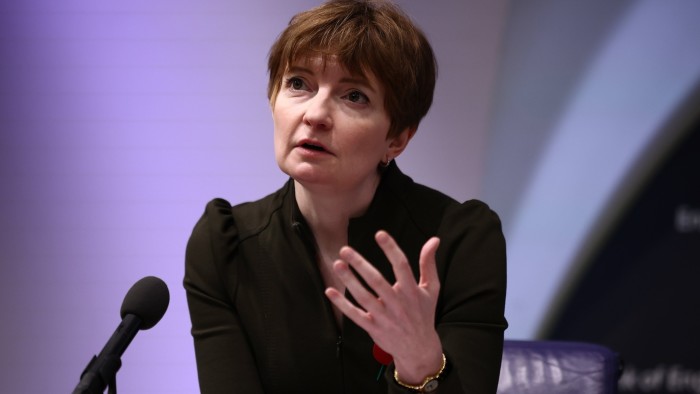Stay informed with free updates
Simply sign up to the UK inflation myFT Digest — delivered directly to your inbox.
It is too soon to declare victory over inflation, a senior Bank of England official has warned, as she highlighted continued tightness in the labour market.
“It’s often been said that the last mile may be the hardest, and that’s where we are now,” Clare Lombardelli, BoE deputy governor, said at a conference in London on Monday. She said there were signs that wage disinflation may be slowing, adding to arguments for gradual interest rate cuts.
Her words came after the BoE trimmed rates by a quarter point earlier this month while cautioning that it was not in a rush to lower rates again. BoE governor Andrew Bailey said last week that the bank needs to take time to assess risks including the impact of large increases in employer national insurance contributions in the October Budget.
Lombardelli told the Bank of England Watchers’ conference in London that the UK had made good progress on disinflation, with inflation hovering just above the 2 per cent target.
But she signalled she was worried about inflation proving more stubborn than expected.
“I view the probabilities of downside and upside risks to inflation as broadly balanced,” Lombardelli said. “But at this point I am more worried about the possible consequences if the upside materialised, as this could require a more costly monetary policy response.”
She flagged particular uncertainties about the labour market, saying it was “still a little tight and continues to exert upward pressure on wages” even if this effect is easing gradually.
“There are some signs that the process of wage disinflation may be slowing,” she said. “It’s too early to declare victory on inflation.”
Lombardelli acknowledged the weakness of most recent PMI index showing business activity shrank for the first time in a year. But she said she would not take too strong a signal from just one release.
The UK needed to be “vigilant” about the current weakness in the rest of Europe, she said, pointing out how tightly connected the UK economy is with EU activity. “That has an impact on us and will continue to do so.”
Lombardelli is presiding over reforms to the way the BoE approaches monetary policy following a critical review by former Federal Reserve chair Ben Bernanke.
She said the process will take years rather than months, as the BoE overhauls the “whole nose to tail” process of the way it sets monetary policy in the biggest reforms since it was granted operational independence in 1997.
The changes reflect that more frequent and larger supply shocks mean it is important to communicate uncertainty clearly, Lombardelli said.
However, Lombardelli struck a cautious note on whether to publish the Monetary Policy Committee’s expected path for interest rates.
“Publishing a form of expected path risks [suggests] greater certainty about future rates than it is possible to give, which in turn undermines policy credibility.”
Source link









